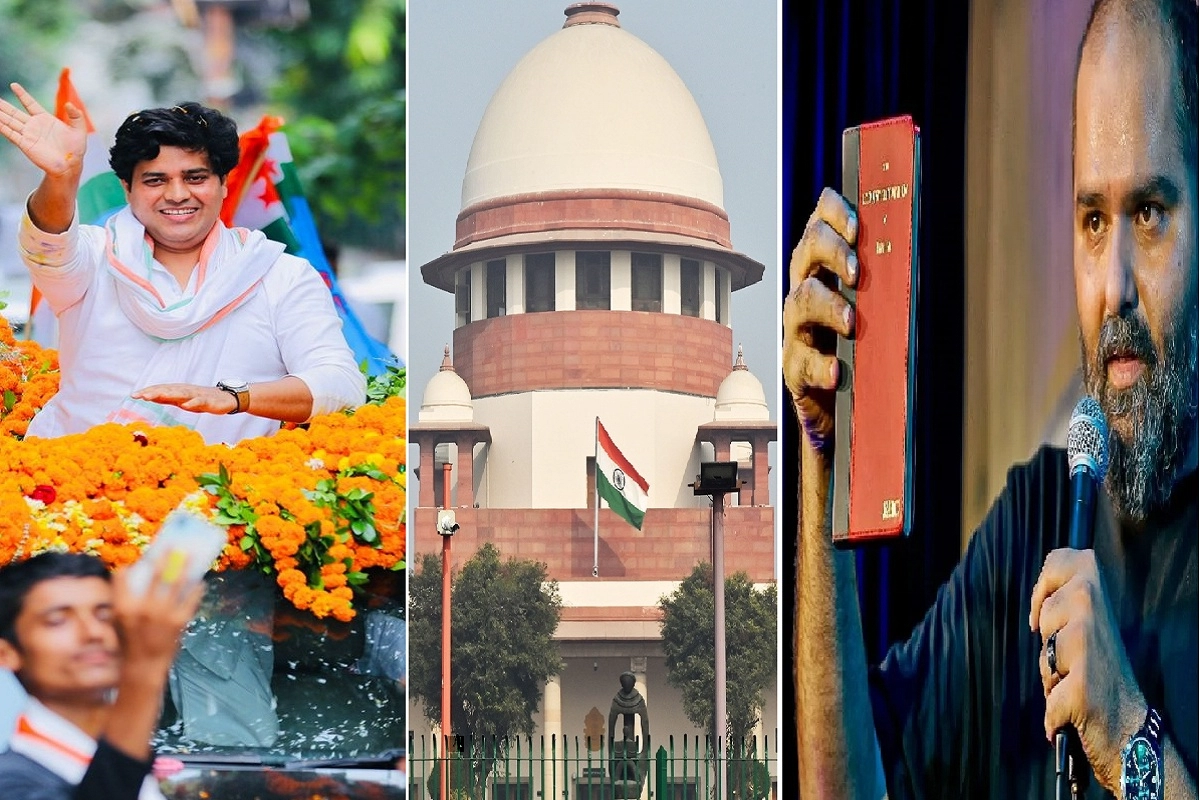The debate on freedom of expression in India has gained fresh momentum with a recent Supreme Court ruling that quashed an FIR against poet and politician Imran Pratapgarhi. The ruling, delivered by a bench comprising Justices AS Oka and Ujjal Bhuiyan, underscores the importance of artistic expression in a democratic society. This judgment is likely to have broader implications, including possible relief for comedian Kunal Kamra, who is facing legal trouble over his satirical comments.
The Supreme Court’s Strong Stand on Freedom of Expression
The court emphasized that freedom of speech, including literature, poetry, satire, and art, is crucial for a vibrant democracy. It stated that expressing views independently is an essential element of a healthy and civilized society. The court also highlighted the necessity of safeguarding the fundamental rights of citizens, ensuring that constitutional ideals are upheld.
According to the verdict, “A democratic society thrives when its citizens are free to express themselves without fear of persecution. The role of courts is to ensure that these rights are protected and not curtailed arbitrarily.”
Imran Pratapgarhi’s Case – What Led to the FIR?
Imran Pratapgarhi, a well-known poet and politician, faced legal action after a 46-second video surfaced from a mass wedding event in Jamnagar, Gujarat, in January 2025. The video, in which flower petals were showered on Pratapgarhi while poetry played in the background, was alleged to be “inflammatory” and “against national unity.” Following this, an FIR was lodged against him under sections 196 and 197 of the Indian Penal Code.
Upon learning about the FIR, Pratapgarhi approached the Gujarat High Court, seeking its cancellation. However, the High Court refused to grant him relief, stating that the investigation was still in its early stages. The court also noted that Pratapgarhi had not cooperated with the inquiry.
Supreme Court’s Verdict – A Boost for Free Speech
Disappointed with the Gujarat High Court’s decision, Pratapgarhi moved the Supreme Court, which ultimately ruled in his favor. The apex court quashed the FIR, stating that the allegations were not substantial enough to infringe on the fundamental right to free expression. The court further asserted that criminal charges based on artistic and literary expressions could set a dangerous precedent, discouraging free thought and speech in society.
Legal experts have hailed this ruling as a landmark decision that reinforces the importance of free speech in India. They argue that it sends a strong message to law enforcement agencies about the need to carefully assess cases related to artistic expression before filing legal charges.
Implications for Other Cases – Could Kunal Kamra Get Relief?
Following this judgment, speculation has risen regarding its potential impact on comedian Kunal Kamra’s ongoing legal battle. Kamra is facing a defamation trial after making a satirical remark about Maharashtra Chief Minister Eknath Shinde, calling him a ‘traitor’ during a comedy act. The controversy led to legal action against him, sparking debates on the extent to which humor and satire are protected under free speech laws.
Legal analysts suggest that the Supreme Court’s ruling in Pratapgarhi’s case could serve as a precedent in Kamra’s case, reinforcing the argument that artistic and satirical expressions should not be criminalized. If Kamra’s defense can successfully argue that his statements fall within the realm of satire and public commentary, he might also receive legal relief.
Freedom of Speech – A Continual Battle in India
Over the years, India has witnessed several legal battles over free speech. From filmmakers and writers to journalists and comedians, numerous individuals have faced legal action for expressing their views. While freedom of expression is enshrined in Article 19(1)(a) of the Indian Constitution, it is subject to certain restrictions concerning public order, morality, and national security.
However, critics argue that these restrictions are often misused to target voices critical of the establishment. The Supreme Court’s latest verdict is being seen as a step in the right direction, reinforcing the need for a balanced approach that respects free speech while maintaining social harmony.
The Changing Landscape of Free Speech in India
The ruling comes at a time when India’s legal landscape regarding freedom of speech is evolving. The increasing role of social media and digital platforms has amplified public discourse, making it easier for individuals to voice their opinions. However, this has also led to a rise in legal challenges, with more people facing defamation suits, sedition charges, and FIRs over online content.
Several past cases highlight the complexities of this issue:
- Munawar Faruqui Case (2021): The stand-up comedian was jailed for allegedly insulting religious sentiments, despite no clear evidence.
- Arundhati Roy Case (2010): The author faced sedition charges for her remarks on Kashmir.
- MF Husain Case (1996-2008): The artist was targeted for his paintings, which some groups considered offensive.
The Supreme Court’s latest decision is expected to influence future rulings on similar cases, potentially making it harder for authorities to misuse laws against artists, writers, and comedians.
Final Thoughts – A New Chapter for Free Speech?
While the Supreme Court’s ruling in favor of Imran Pratapgarhi is a positive step, the broader fight for free speech in India is far from over. This decision sets an important precedent, but the enforcement of free speech rights remains a challenge. For individuals like Kunal Kamra and others facing legal trouble for expressing their views, this ruling provides a glimmer of hope.
As India continues to evolve as a democracy, ensuring that laws are not misused to stifle expression will be crucial. The Supreme Court has reaffirmed that freedom of speech and artistic expression are fundamental to a thriving society. It now remains to be seen how this ruling shapes future legal battles surrounding free speech in the country.


